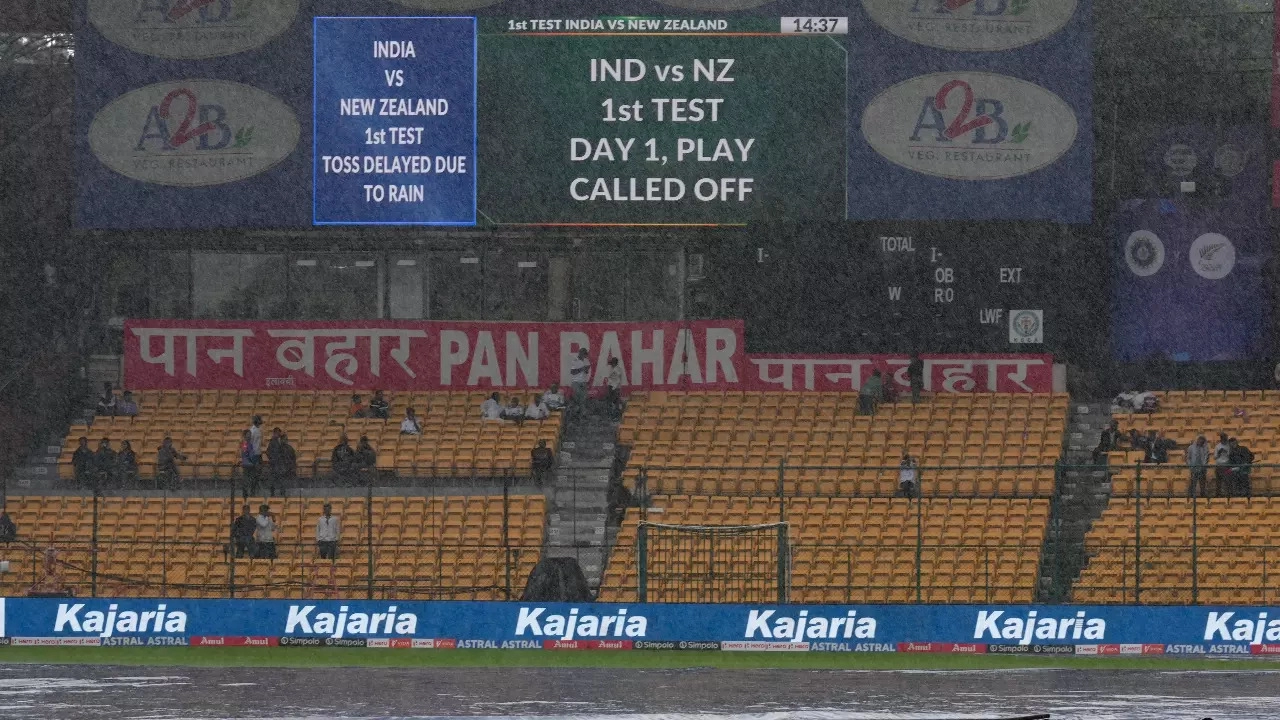
Explained! How Hawk-Eye Played A Role In Early End To Day 1 Of Bengaluru Test Between India And New Zealand (Source: AP)
Day 1 of the first Test between India and New Zealand at M Chinnaswamy Stadium in Bengaluru was washed out due to rain. The forecast was for rain throughout the day and it did come true, forcing a complete washout. The umpires waited for a couple of sessions before calling off the day. The washout was not what India wanted as they look to seal a 3-0 win over New Zealand, but the rain had its stay.
India would hope that the weather stays clear for the remainder of the match and they sneak out a result that will give them crucial World Test Championship (WTC) points. The Chinnaswamy Stadium is known for its SubAir drainage system, one of the best in the world. The technology allows resumptions of play within 45-60 minutes of rain stoppage. The rain did stop for a while but it wasn't possible for the umpires to get the play started on time which is why the play was called off slightly early.
The reason for this was the non-implementation of the Hawk-Eye system. As per reports, the officials needed an extra hour and a half for Hawk-Eye to be calibrated. The technology is usually calibrated a day before the Test but it couldn't be done yesterday because the pitch remained under cover.
After the play was called off, the groundsmen removed the covers due to some technical work, possibly for the calibration of the Hawk-Eye. Indian captain Rohit Sharma also came out and had a look at the pitch before going back.
The officials have announced the revised session timings for Day 2 to make up for lost overs. The first session will start at 9:15 to 11:30, while the second session will be played between 12:10 to 14:25. The post-team session will begin at 14:45 to 16:45.
Get Latest News Live on Times Now along with Breaking News and Top Headlines from Cricket, Sports and around the world.
